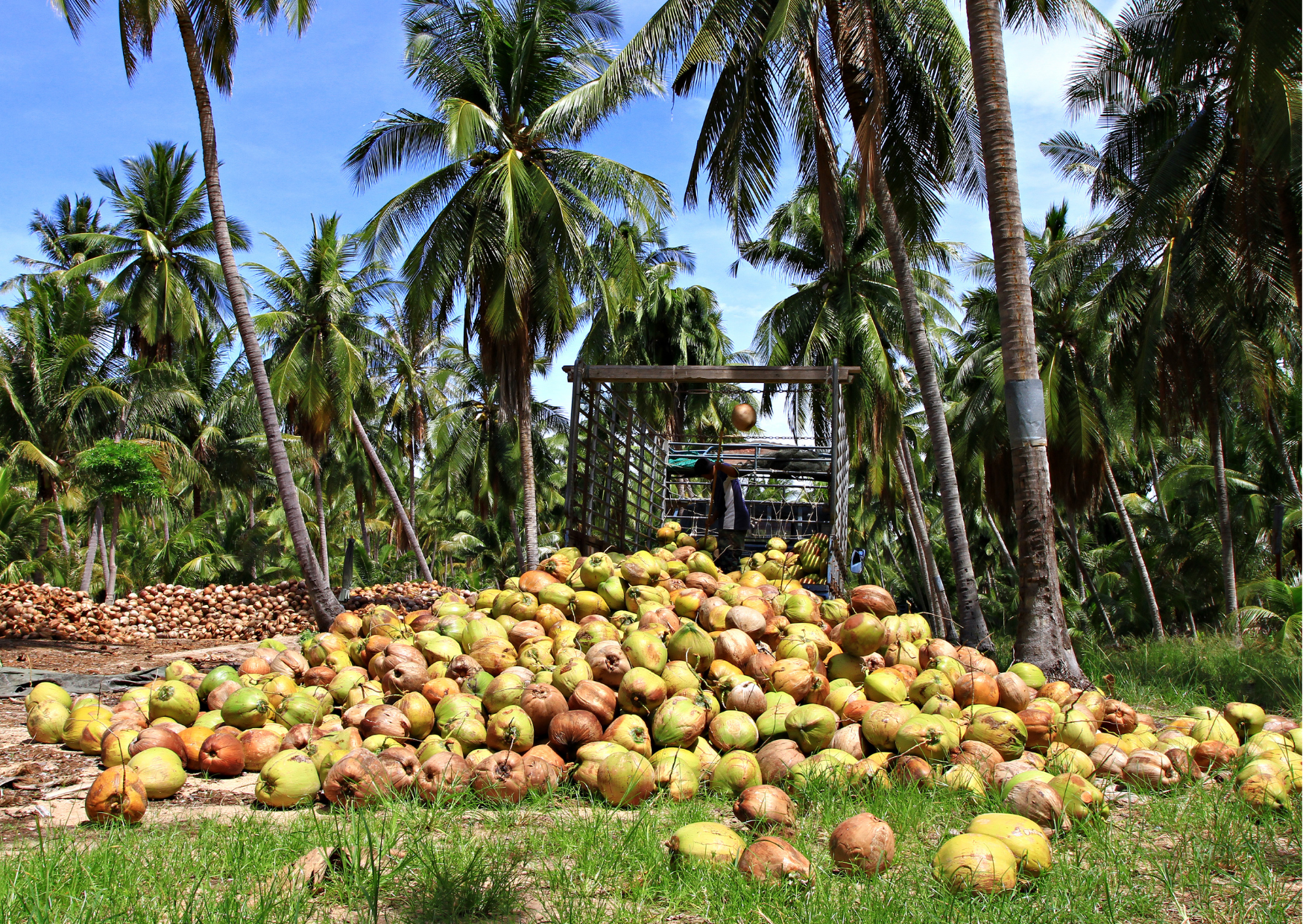
The Department of Agriculture (DA) welcomes President Rodrigo R. Duterte’s approval of the Coconut Farmers and Industry Development Plan (CFIDP), which sets the direction toward the coconut industry’s rehabilitation, modernization, and industrialization while aiming to improve the livelihoods of 2.5 million coconut farmers.
“The issuance of Executive Order 172, which approves the CFIDP, is yet another manifestation of the Duterte Administration’s commitment to uplift our farmers and foster a competitive Philippine agriculture,” Agriculture Secretary William D. Dar said.
Overall, the CFIDP is seen to alleviate poverty and achieve the twin goals of rehabilitating and modernizing the coconut industry to attain social equity.
A product of whole-of-government cooperation involving various relevant government agencies, academic institutions, private sector stakeholders, industry players, and coconut farmers, the CFIDP will implement national programs for social protection of coconut farmers, farm workers, and their families; farmers’ organization and development; innovative research projects and their practical application; community-based enterprises; and integrated processing of coconut and downstream products.
Further, the approval of the CFIDP will allow the release of the trust funds created through Republic Act 11524 or the Coconut Farmers and Industry Trust Fund (CFITF) Act. The law recovered coco levy assets, which were declared state-owned by the Supreme Court less than 10 years ago.
The trust fund, which ensures a funding of P75 billion over the next five years, will be disbursed in accordance with the CFIDP.
Immediately upon the enactment of the coco levy act, P10 B shall be disbursed to the Trust Fund, and for the succeeding years will trail the following schedule:
- P10 B, second year;
- P15 B, third year;
- P15 B, fourth year;
- P25 B, fifth year, and any amount accruing, including interest.
The Plan will be reviewed annually to adjust to emerging trends and needs of the coconut sector.
Taking the lead in the full implementation of the coconut trust fund law, PCA ensures to consolidate and expedite the delivery of benefits due to coconut farmers to increase their incomes, alleviate poverty, and achieve social equality.
PCA Administrator Benjamin R. Madrigal, Jr. said that the agency has undertaken significant organizational reforms to be efficient, more responsive, and proactive in service to the country’s coconut industry.
“After more than four decades of waiting, the law for the management and utilization of the coco levy fund that was enacted last year will now be finally implemented in fulfillment of President Duterte’s campaign promise to our coconut farmers. As the Duterte administration comes to a close, this shall be the lasting legacy of the President in improving the lives and the livelihood of our dear coconut farmers,” said Administrator Madrigal.
Secretary Dar said that aside from improving productivity and coconut farmers’ incomes, the CFIDP will also hike the contribution of the coconut subsector to total agricultural gross value added (GVA) and sustain the country’s status as the world’s number one exporter of coconut products.
According to PCA, coconut products raked in an average export revenue of P91.4 billion from 2014 to 2018.
Coconut is planted in 3.6 million hectares, mostly in 69 provinces, where there are 347 million fruit-bearing trees that produced in 2019 14.8 million metric tons (MMT), in copra terms.
That year, coconut export products totaled 2 MMT in copra terms, with coconut oil accounting for the bulk, according to the United Coconut Association of the Philippines (UCAP). This was followed by copra meal, desiccated coconut and oleochemicals,
In 2019, the coconut sector contributed more than USD1B in export revenues. Coconut, particularly coconut oil, is one of the top agricultural export commodities in 2019 placing the Philippines as the number one exporter of coconut oil in the world. The Philippines maintained its global leader position in the coconut product exports in 2020. Philippine exports of coconut oil and desiccated coconut accounted for 52.48% and 35.91% of the global market, respectively.
Davao, Zamboanga Peninsula, and Northern Mindanao are the country’s top coconut-producing regions. ### (DA-StratComms)













